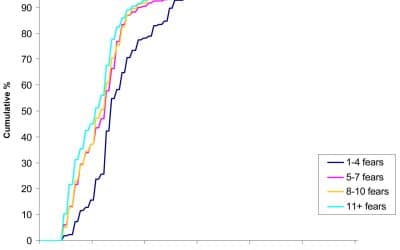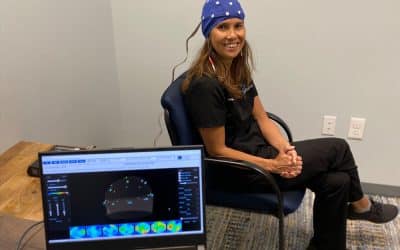Abstract A number of studies have noted that the pattern of resting frontal brain electrical activity (EEG) is related to individual differences in affective style in healthy infants, children, and adults and some clinical populations when symptoms are reduced or in...
Neurofeedback
Social fears and social phobia in the USA: results from the National Comorbidity Survey Replication
Abstract Background: Despite heightened awareness of the clinical significance of social phobia, information is still lacking about putative subtypes, functional impairment, and treatment-seeking. New epidemiologic data on these topics are presented from the National...
Neurofeedback Treatment of Depression and Anxiety
Abstract A robust body of research documents that there are biological predispositions that often exist for depression, anxiety, and obsessive–compulsive disorder. However, new research has shown that medication is only mildly more effective than placebo in the...
Non-stimulant treatment for attention deficit hyperactivity disorder
No abstract available Budur K, Mathews M, Adetunji B, Mathews M, Mahmud J. Non-stimulant treatment for attention deficit hyperactivity disorder. Psychiatry (Edgmont). 2005 Jul;2(7):44-8. PMID: 21152160; PMCID: PMC3000197.
P.3.041 Clinical and neurophysiological efficacy of neurofeedback in the combined therapy of anxiety disorders resistant to psychopharmacotherapy
Abstract The objective of this study was to assess clinical efficacy and safety of proproten in anxiety disorders in comparison with diazepam. A multicenter randomized open-label comparative trial was conducted in four clinical centers in Russia. A total of 247 male...
Neurofeedback with anxiety and affective disorders
Abstract A robust body of neurophysiologic research is reviewed on functional brain abnormalities associated with depression, anxiety, and obsessive-compulsive disorder. A review of more recent research finds that pharmacologic treatment may not be as effective as...
Vitamin B6 level is associated with symptoms of depression
Abstract Background: A low level of vitamin B6 might theoretically cause depression as vitamin B6 is a cofactor in the tryptophan-serotonin pathway. In the present study, we examined the association between depression and the phosphate derivative of vitamin B6 in...
The worldwide prevalence of ADHD: is it an American condition?
Abstract Attention-deficit/hyperactivity disorder (ADHD) is a behavioral disorder that affects up to 1 in 20 children in the USA. The predominance of American research into this disorder over the past 40 years has led to the impression that ADHD is largely an American...
QEEG-Guided Neurofeedback in the Treatment of Obsessive Compulsive Disorder
Abstract Introduction. Blinded, placebo-controlled research (e.g., Sterman, 2000) has documented the ability of brainwave biofeedback to recondition brain wave patterns. Neurofeedback has been used successfully with uncontrolled epilepsy, ADD/ADHD, learning...








